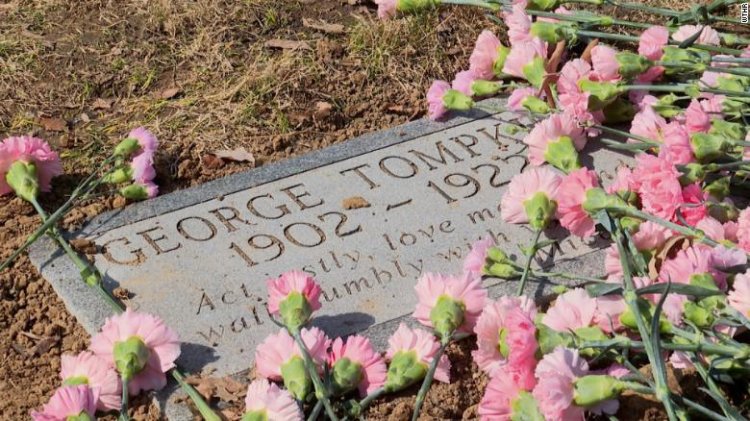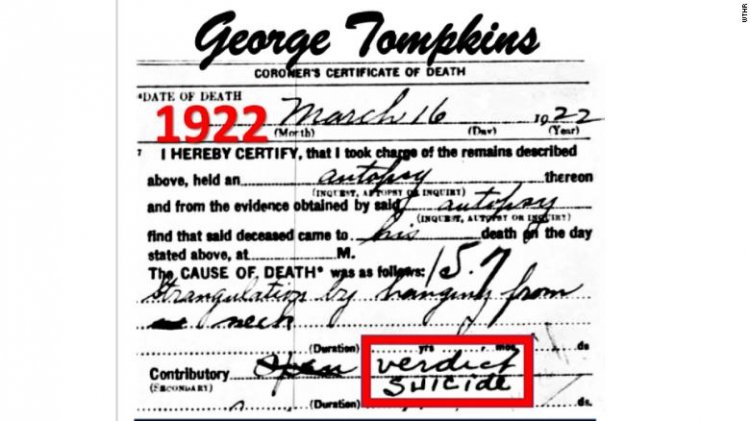A century ago, a Black man's death was considered a suicide. A coroner has now concluded that it was a lynching.
Despite these circumstances, Tompkins' autopsy was conducted and the certificate of death certified by Dr. George R. Christian, a deputy coroner in 1922, according to papers. According to a written petition to amend Tompkins' death certificate, the method of death was changed from "open" to "suicide" in a different handwriting style.

On the morning of March 16, 1922, George Tompkins left his home, but the 19-year-old never returned. According to the Indiana Remembrance Coalition, the Black man's body was discovered hanging from a sapling with his hands chained together at Riverside Park in Indianapolis that afternoon.
Alvarenga McGinty, Marion County's chief deputy coroner, has determined Tompkins' death a lynching, not a suicide, after reviewing his case a century later.
In 1922, Marion County coroner Dr. Paul Robinson viewed Tompkins' body shortly after police reported it. "There could be no doubt that the man was slain and his body was then tied to the tree," he stated at the time, according to local media sources.
Tompkins was "dead or nearly dead" when he was hanged, according to Robinson.
Despite these circumstances, Tompkins' autopsy was conducted and the certificate of death certified by Dr. George R. Christian, a deputy coroner in 1922, according to papers.
According to a written petition to amend Tompkins' death certificate, the method of death was changed from "open" to "suicide" in a different handwriting style.
Through a written petition, the Indiana Remembrance Coalition brought Tompkins' case to McGinty's attention, prompting her to "unquestionably" amend his manner of death on his death certificate.
"Neither in life nor death, George Tompkins received justice in 1922," remarked Indianapolis Mayor Joe Hogsett.

Even though George Tompkins was found hanging with his wrists bound, indicating a lynching, his death was initially ruled a suicide.
"It was an honor to make this injustice right," Chief Deputy Coroner McGinty remarked.
The Emmett Till Antilynching Act of 2022 was unanimously passed by the US Senate last week. President Joe Biden has yet to approve the measure, which would make lynching a federal hate crime.
"Things like this happen today," Karen Christensen, a member of the Indiana Remembrance Coalition, told CNN affiliate WTHR. "It might look a bit differently, but things like this happen today."
"If we don't understand our past, we will repeat it, and we are doing so right now, which is why we want to talk about it so we can end racial violence."
Tompkins' unmarked burial at Floral Park Cemetery was finally memorialized with a headstone on March 12, over a century later.
Jenn Selva and Rebekah Reiss of CNN contributed to this piece.

 Boakyewaa Lawrencia
Boakyewaa Lawrencia 



































